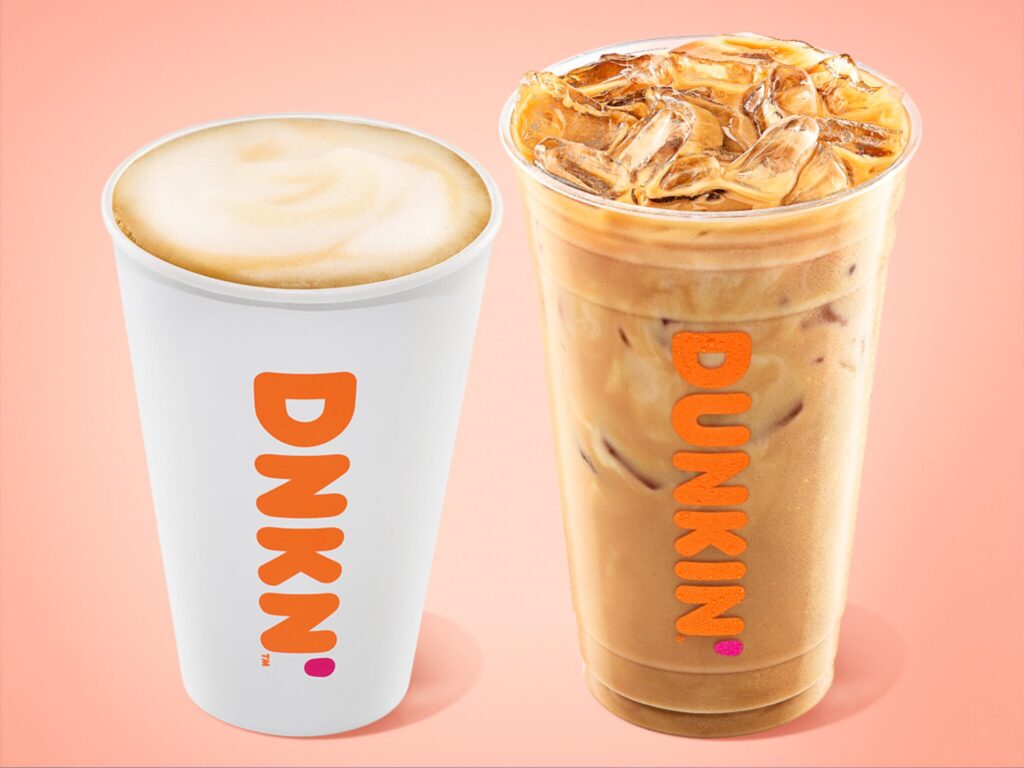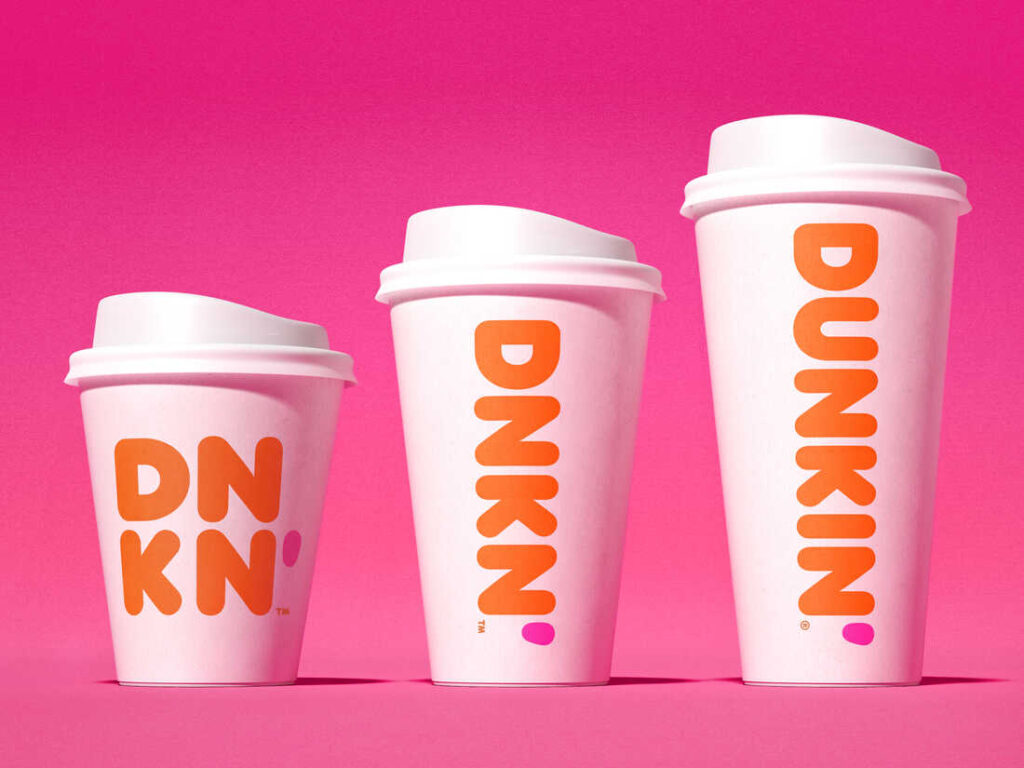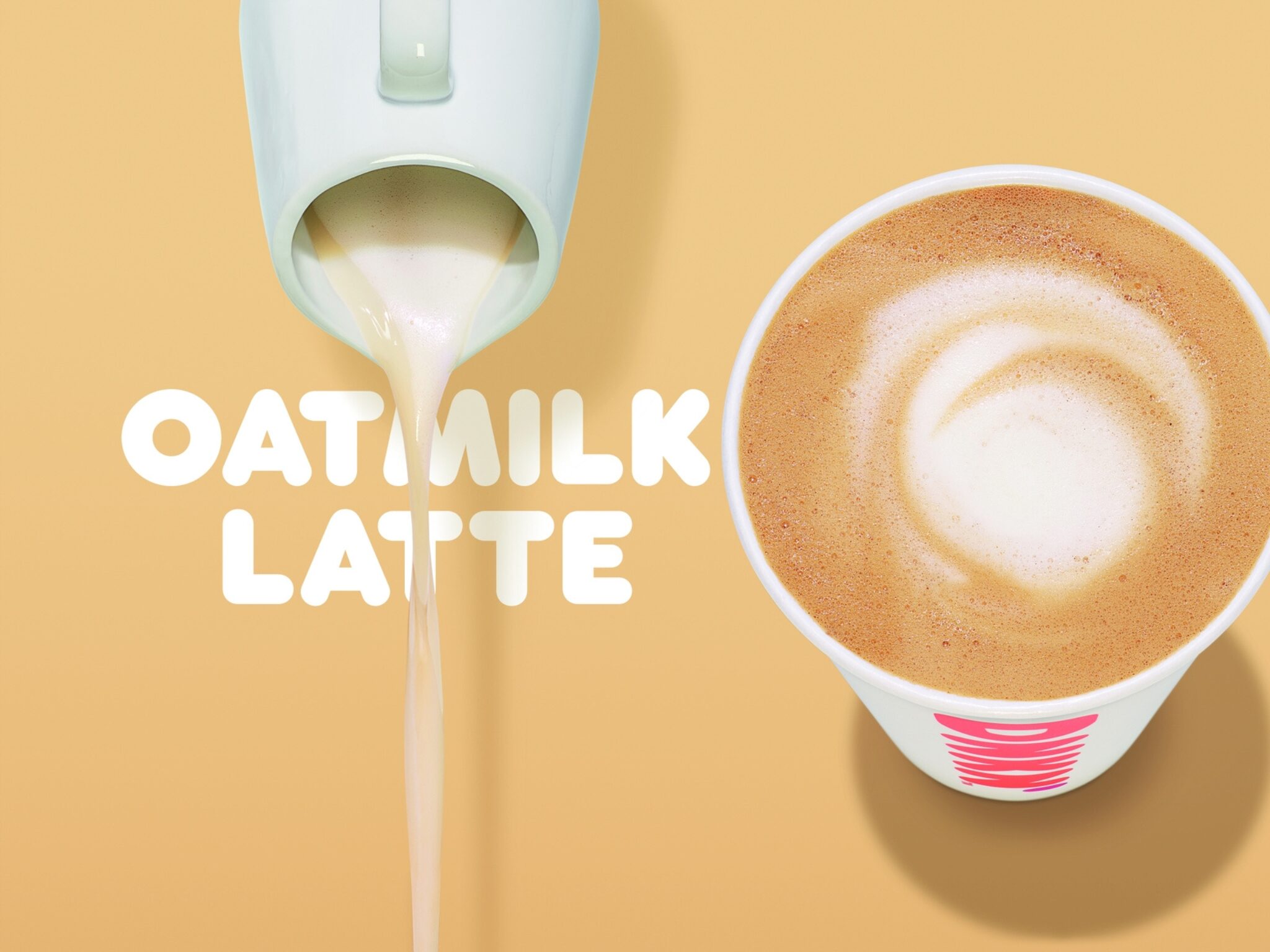5 Mins Read
Dunkin’ is being sued for $5M under the Americans with Disabilities Act, with plaintiffs alleging that the surcharge on plant-based milk discriminates against people with lactose intolerance. Do their claims stack up?
The US’s second-largest coffee chain, Dunkin’, is facing a class-action lawsuit for discriminating against customers with lactose intolerance by charging extra for plant-based milk in its beverages. The plaintiffs argue that the surcharge for non-dairy milk violates the American Disabilities Act, mirroring a similar ongoing case levelled against Starbucks.
Filed on December 26 in a district court in Northern California, the complaint lists 10 named plaintiffs seeking $5M in damages on behalf of all of Dunkin’s customers who opt for dairy alternatives. The suit claims that between 2018 and 2023, Dunkin’ has charged consumers between 50 cents to $2.15 extra for soy, oat, almond and coconut milk (the latter was discontinued from the menu at the end of last year).
The plaintiffs cite the Americans with Disabilities Act (ADA) to support their suit, claiming that the surcharge of plant-based milks for beverages is discriminatory against people suffering from lactose intolerance, which is a disability under ADA, according to Bogdan Enica, an attorney representing the plaintiffs. “Being able to drink milk is a choice for some people, but it’s not for others,” he told NBC. But will this claim hold up in court?
Is lactose intolerance a disability?

In the five years that the lawsuit covers, Dunkin’ earned $250M in revenue, and made significant profits after it “created a separate, higher-priced menu, aimed at customers who cannot ingest milk”, the lawsuit states. At the same time, the chain – which serves around three million cups of coffee daily – allows customers to modify beverages with whole or skimmed milk instead of the standard 2% milk at no extra cost.
Similarly, the lawsuit claims that Dunkin’ allows free substitutions to make drinks caffeine- or sugar-free for people with heart conditions, hypertension, diabetes and weight-control issues. In this vein, the attorneys argue that not only is the non-dairy surcharge a federal violation, but it also breaches anti-discrimination laws in the states where plaintiffs live, including Hawaii, California, New York, Texas, Massachusetts and Colorado.
The suit states that lactose intolerance and milk allergies are considered disabilities, noting that at least 12% of Americans suffer from the former, while over 15 million have a milk or dairy allergy. One estimate claims that between 80-90% of African Americans, Native Americans and Asian Americans are lactose-intolerant. Globally, 68% of the world’s population suffers from lactose malabsorption, whereby the small intestine cannot digest/break down lactose.
The complaint further notes the Dunkin’ allergen statement, which advises patrons to inform staff if they have a food allergy. However, the plaintiff argues that “they only accommodate those with lactose intolerance or allergies to milk by imposing a surcharge”.
“Once Dunkin’ asks about allergies, and someone with a disability requests a dairy-free product as an accommodation, they can’t impose a surcharge – as they don’t for caffeine-free drinks, etc.,” Arlene Kanter, founding director of Syracuse University’s disability law and policy programme, told NBC.
Additionally, there is “no material difference between the price of lactose-containing milks and the price of non-dairy alternatives”, according to the plaintiffs. But according to the Good Food Institute, gallon for gallon, plant-based milk was 87% more expensive than dairy in 2022 – though government subsidies no doubt play a part here. The lawsuit calls Dunkin’s surcharge “excessively high”, claiming that companies charge consumers more than what it costs them to provide it.
Could the ADA help abolish the plant-based milk surcharge?

The lawsuit states that lactose intolerance and milk allergies are disabilities, and cites the ADA by saying: “[A] public accommodation may not impose a surcharge on a particular individual with a disability or any group of individuals with disabilities to cover the costs of measures, such as the provision of auxiliary aids, barrier removal, alternatives to barrier removal, and reasonable modifications in policies, practices, or procedures, that are required to provide that individual or group with the nondiscriminatory treatment required by the Act or this part.”
Essentially, a public entity like Dunkin’ must make “reasonable modifications” to its rules or practices when required, to allow people with disabilities to afford its goods or services – unless the company can show that these changes would fundamentally alter the nature of their offerings.
“If a person qualifies as a person with a disability, and they’re entitled to an accommodation or modification – which in this case looks pretty simple as non-dairy milk – they cannot be charged extra,” explained Kanter.
She added that allergies and intolerances can be disabilities if they substantially limit a major life activity, but people who are perceived to have a disability are also protected by the ADA, which came into law in 1990 and was expanded in 2008 to broaden its definition of a disability.
“Dunkin’s policy of charging all customers a surcharge for non-dairy milks disproportionately affects persons with lactose intolerance and milk allergies,” Enica told USA Today. “The only choice for this group of people is to pay the surcharge.”
The $5M sought by the plaintiffs is the minimum amount that lawsuits need to seek to fall under the jurisdiction of a district court. It could help them regain some of the money they have spent on plant-based milk options at Dunkin’, and force businesses like itself to eradicate the surcharge. It’s a strong sentiment: Enica has said that more than 50 people who are lactose-intolerant or have milk allergies have reached out to join the lawsuit.
Chelsea Garland, a lactose-intolerant woman from San Diego, joined the legal filing because she felt it was unfair she had to pay more for a coffee that wouldn’t make her sick. “The Dunkin’ surcharge for non-dairy milk directly affected me, and I believed it was wrong,” she said.
Enica’s firm previously filed a similar class-action lawsuit in 2022 against Starbucks, which has filed a motion to dismiss, which is pending approval by the court. As for Dunkin’, the company has filed a waiver acknowledging the suit, and has until March 4 to respond.
Corporate legal watchdog ClassAction.org reports that attorneys are looking at whether other coffee companies – including Peet’s Coffee (which trialled free non-dairy modifications last April), Caribou Coffee (which dropped the surcharge in May, but only for loyalty programme members), Biggby Coffee, Dutch Bros, and The Coffee Bean & Tea Leaf – could be sued.
But businesses would be wise to follow the lead of coffee chains like Blue Bottle, which made oat milk its default option at a third of its locations in 2022 and doesn’t charge extra for oat or almond milk, and Philz Coffee, which replaced 2% milk with oat milk and offers it for free alongside soy and almond milk.




